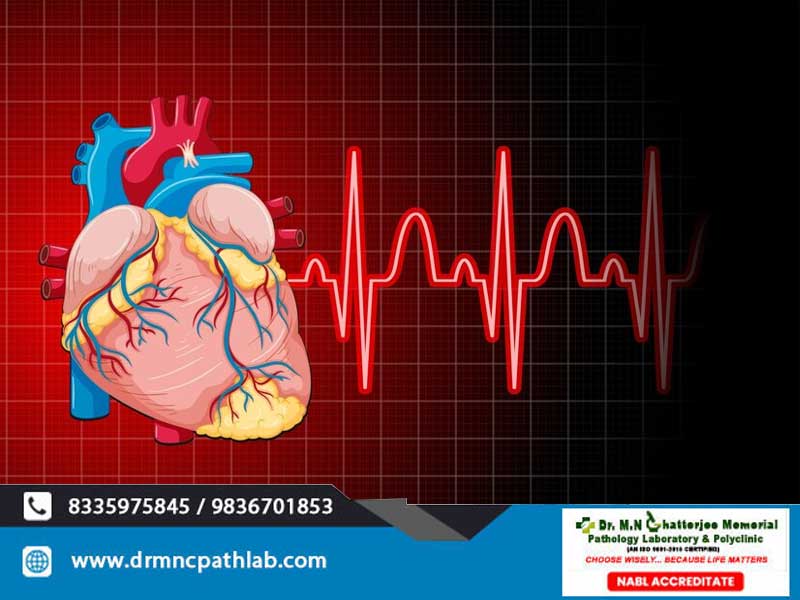Cardiac arrest is a critical heart condition characterized by the sudden cessation of the heart’s pumping action, leading to a severe restriction in blood flow to vital organs such as the brain. This abrupt stoppage is often caused by electrical disturbances or irregular heartbeats, known as arrhythmias. Factors such as physical stress, oxygen deprivation, intense exertion, and low blood pressure can trigger these disturbances. Additionally, individuals with coronary heart disease, marked by arterial plaque buildup reducing blood flow to the heart, are at heightened risk, as are those with a family history of arrhythmias. If you face any such issue, get in touch with the best doctors’ clinic in Hooghly named MNC Pathlab.
Signs & Symptoms:
Recognizing the signs and symptoms of cardiac arrest is crucial for prompt intervention. Warning signs include extreme dizziness, shortness of breath, chest pain, palpitations, sudden collapse, loss of pulse, difficulty breathing or loss thereof, unconsciousness, weakness, fatigue, nausea, or vomiting. Identifying these indicators necessitates swift emergency response.
Risk Factors:
Certain risk factors predispose individuals to cardiac arrest, including smoking, hypertension, high cholesterol, diabetes, obesity, excessive alcohol consumption, sedentary lifestyle, familial history of coronary artery disease or cardiac arrest, drug abuse (e.g., amphetamines, cocaine), congenital heart defects, cardiomyopathy, poor nutrition, and advancing age.
How to Combat?
Prevention strategies encompass adopting healthy habits and undergoing regular heart screenings. Avoiding smoking and excessive alcohol intake, consuming heart-healthy foods rich in omega-3 fatty acids, engaging in regular physical activity like walking or jogging, and maintaining a balanced diet is vital. Individuals with existing heart conditions should adhere to prescribed medications, follow dietary recommendations, and engage in appropriate physical activities under medical supervision.
Timely intervention during a cardiac arrest is imperative to prevent sudden cardiac death. Immediate administration of cardiopulmonary resuscitation (CPR), utilization of defibrillators, or chest compressions can enhance survival rates until professional medical assistance arrives. Often, warning signs precede a cardiac arrest, yet they may be misunderstood or overlooked. Increasing awareness of cardiac arrest symptoms and preventive measures can significantly impact outcomes and save lives.
In conclusion, understanding the risk factors, signs, and preventive measures associated with cardiac arrest is crucial for timely intervention and improved survival rates. By adopting a proactive approach to heart health and being vigilant about warning signs, individuals can mitigate their risk and potentially avert life-threatening events. For any assistance, get in touch with the diagnostic center in Uttarpara, MNC Pathlab today.

